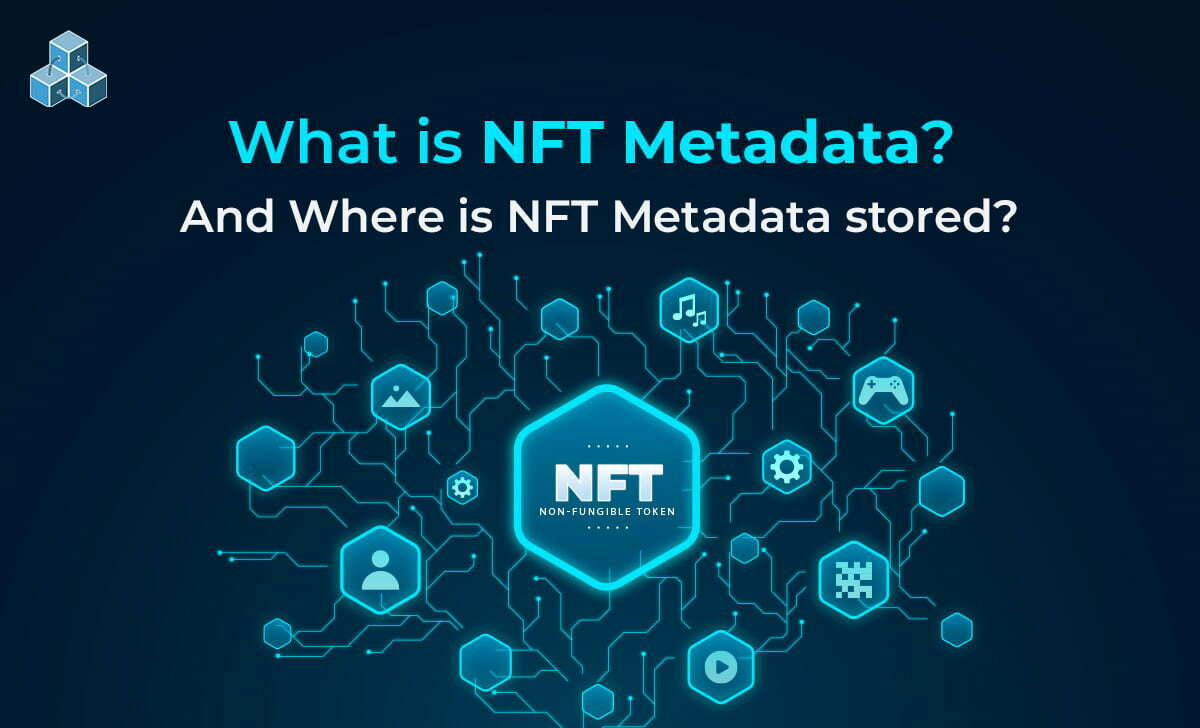What is NFT Metadata? And Where is NFT Metadata stored?
What is NFT Metadata?
Metadata is used to store information about other data. In NFT, the metadata describes the essential features, properties, and additional characteristics, such as the name and description of the digital asset. It also includes the creation of the date and time of the digital asset, the creator’s name, contact information, and the characterization of the asset.
The NFT marketplace relies on the metadata to present NFTs to the buyers and sellers. For this, the metadata must be formative enough so that the marketplace can understand it and introduce it in a reasonable way. The Metadata stored on the blockchain network allows users to track and manage their assets. Metadata allows NFT creators to create something reinvigorated and unimaginable to duplicate. As a result, NFTs with rich metadata are highly pursued by collectors and investors.
Where is NFT metadata stored?
NFT metadata is stored on the IPFS (Interplanetary File System). A decentralized system of computers is used to store and share information and uses the same protocol to communicate. IPFS uses content-addressing to acknowledge different files in a global space. It is essential to link NFTs to an NFT metadata, a place where the assets and artwork are stored. The IPFS is resistant to any censorship and data loss. It is possible because the data is stored among different nodes of the network.The NFTs are unique and valuable because they are impossible to replicate or modify. The NFTs are unique and valuable because they are impossible to replicate or modify. Metadata is stored on the blockchain network (on-chain) or in the private sector (off-chain).
Storing NFTs Off-Chain
In NFT off-chain, you entrust a third-party service such as a cloud server to hold your assets. This service is responsible for keeping track of your NFTs and ensuring they remain accessible to the user. There are many risks regarding the storage of off-chain NFTs. If the cloud service goes out of business, then your NFTs can be lost forever. As a result, it is essential to weigh any risks and benefits before using the service.
Storing NFTs On-Chain
In NFT on-chain, the data is stored on the blockchain network. In this way, the metadata lasts forever and can be modified according to the on-chain logic.
Therefore it is always advised to be careful while buying a long-term asset. You can always choose the kind of NFT you want to buy.
Intro to JSON data
The most standard structure for NFT metadata is JSON. It is a lightweight data format first defined by javascript. This format does not impose any constraints on the configuration of the data.
The Ethereum network is set to receive JSON file standards, making it easier for NFTs to interact with smart contracts. The standard also makes it easy for NFTs to interoperate with JSON-based systems such as the Web3 API. The ERC 721 standard allows storing the JSON metadata on the blockchain network.
While creating NFT metadata, some aspects need to be considered in the JSON file.The most standard structure for NFT metadata is JSON. It is a lightweight data format first defined by javascript. This format does not impose any constraints on the configuration of the data.
The first step is you need a distinctive identifier for your NFT. Some basic information regarding the NFTs, such as their title, description, and keywords. A proper file format that is easy for users to understand and interact with.
Freezing a metadata
NFTs have become a way for artists to protect their work from duplicity and unauthorized changes. But imagine what happens when an NFT is lost or changed?
The solution to this problem is freezing the metadata. This helps prevent anyone from making changes without the artists’ permission. Freezing also ensures that the NFT can never be stolen or lost.
Takeaway
NFT metadata is a way to store your NFT data on the blockchain. The data includes essential features and characteristics of the NFT. This information lives forever on the blockchain network. This helps ensure that your data can never be lost and tempered.
If you would like to know more about the NFT marketplace development services. Click here.
 info@blockcoders.pro
info@blockcoders.pro
 Our global presence :
Our global presence :
 |
|
 |
|
 |
|


